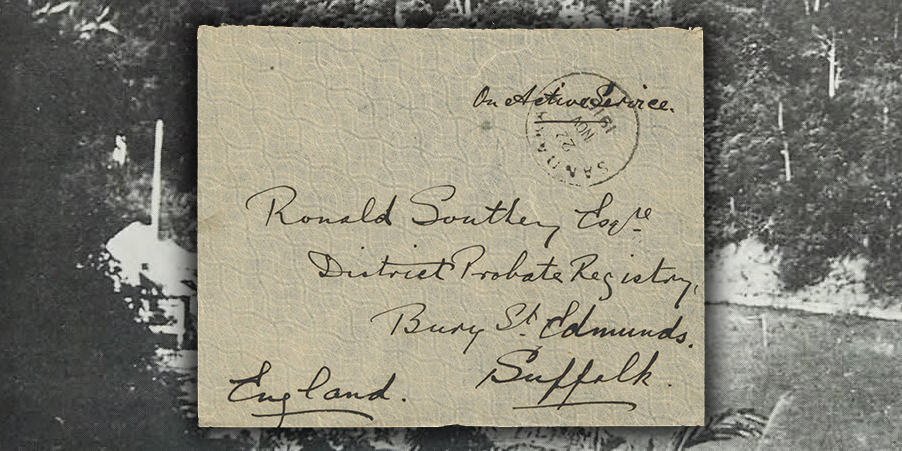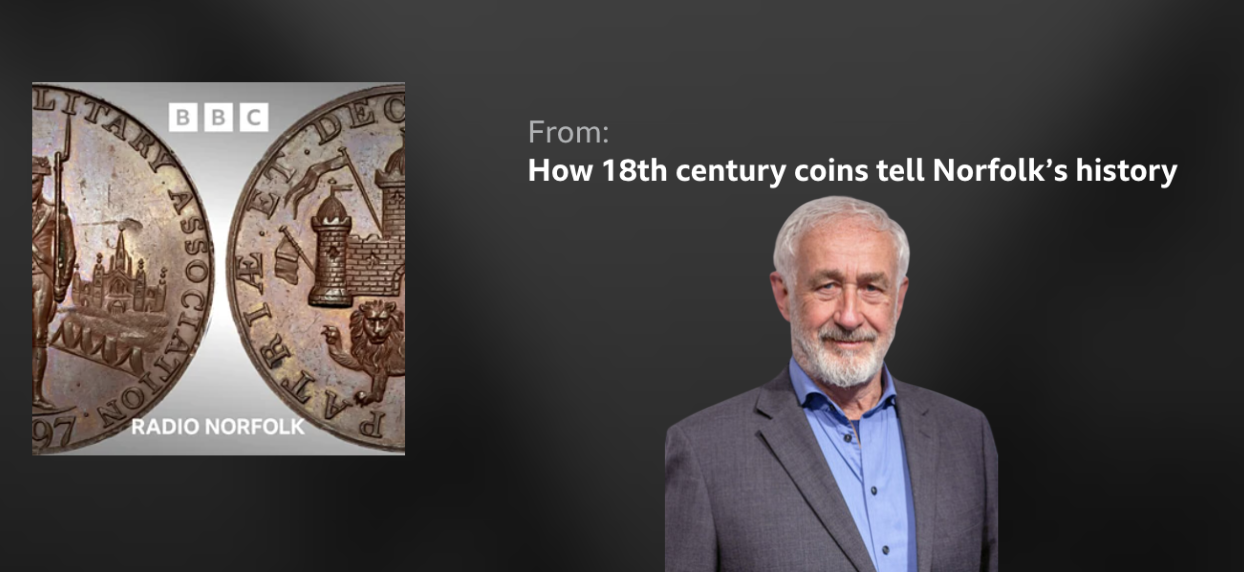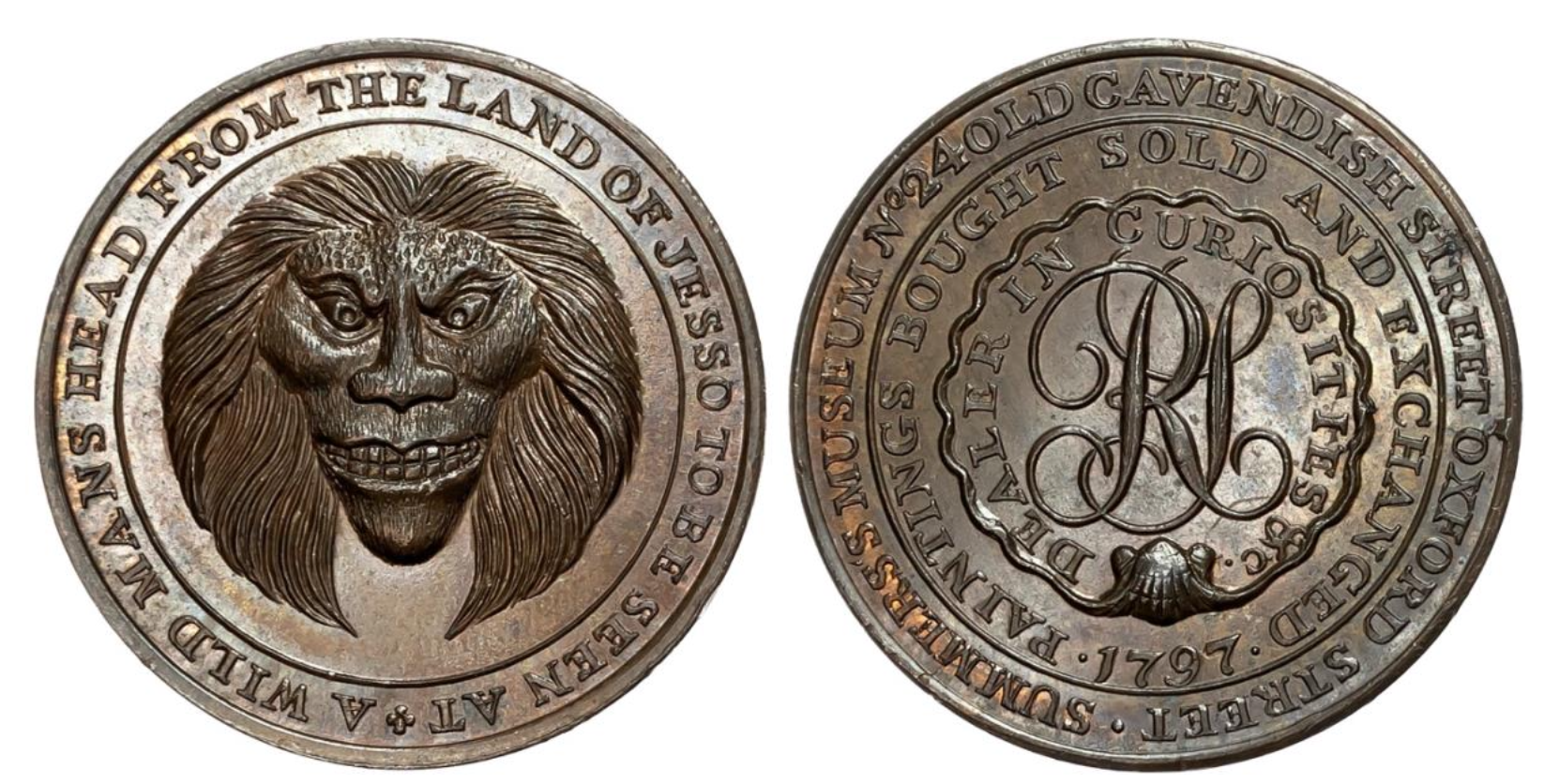In the 1790s there was no official small copper change in the country. Britain was at war with France and the price of copper had risen, causing the regal issue to ‘vanish’. This caused tremendous hardship for small merchants and shop keepers throughout the country, unable to conduct the everyday transactions of selling small goods without change. The Crown was busy with the war and any ‘unofficial’ production of coin of the realm would be seen as forgery – punishable by hanging. Eventually a Welsh mining company hit upon the idea of turning their copper straight into pennies and halfpennies, calling them ‘tokens’ that were redeemable in official coin – thus avoiding the threat of being accused of forgery. As they were the correct weight, no one bothered to change them and in the space of a year, merchants in every town in England had begun issuing their token pence.
This solved the lack of small change in the 1790s and for ten years, until the government got its act together after the war and issued official copper coins. Throughout this last decade of the eighteenth century it is these copper ‘token’ pence and halfpence one would have had in one’s pocket, all over the country, as small change.
There were many merchants in Kent issuing their own coppers, particularly in the town of Canterbury, and also other smaller localities such as Sandwich, Romney Marsh, Dover, Hythe, Dymchurch, Brookland, Tenterden. Staplehurst, Lamberhurst, Maidstone, Deptford, Benenden, Deal, Faversham Goudhurst, Hawkhurst Sheerness, Bromley and Chatham.
One particular halfpenny token used at Deal in 1794 was issued by Richard Long, who was a bookseller and ran a library there. Newspapers would be sent down from London and these ‘reading rooms’ were the main source of information – especially regarding the war with France. Long was fairly prominent in the town and was on the Town Council as well as being an agent for Kent Life and Annuity Office. His token features a man-of-war with the legend THE GUARD AND GLORY OF G’ BRITAIN, which had particular relevance in these troubled times. The reverse bears the cinque Port arms of nearby Sandwich. This, Lot 43, is estimated at £40-50.
Another bookseller and library owner who issued a token was John Horn of Dover, who as well as having the ‘Public reading Room’ in King Street operated the Apollo Circulating Library, which circulated that part of Kent. His establishment in King Street was not just a mere reading room but more a fashionable lounge, with music and a watering hole for the gentry. On his token, he featured the Prime Minister William Pitt who was also Lord Warden of the Cinque Ports and on the reverse, the Cinque port arms of Dover. This, Lot 46, is estimated at £100-120.
Lot 46
The tokens for these Kent localities will feature in an auction of British 18th Century Tokens being held at Baldwin’s Auction House on Monday 7 October 2024. Providing a marvellous window into this last decade of the eighteenth century, the collection represents many British counties as well as throwing colour on the usage of coinage across countless commercial industries and enterprises of the time. For ten years, it was a truly a coinage ‘of the people, by the people, for the people’.
The British 18th Century Token sale, comprised of two parts, will bring to sale over 600 items from three excellent collections, including the collection of Paul Gerrie. The Gerrie lots (1 – 318) are in exceptional condition and are not just uncirculated but also exhibit much original lustre or beautiful toning with brilliance or iridescence. Some were once encapsulated and graded by PCGS and NGC – and in most cases achieved scores of 64 and above. In the second section are yet more tokens in superb condition, including some extreme rarities. Many are ex Cokayne, Drury and Longman, and many more will have come from Baldwins in the last century.



